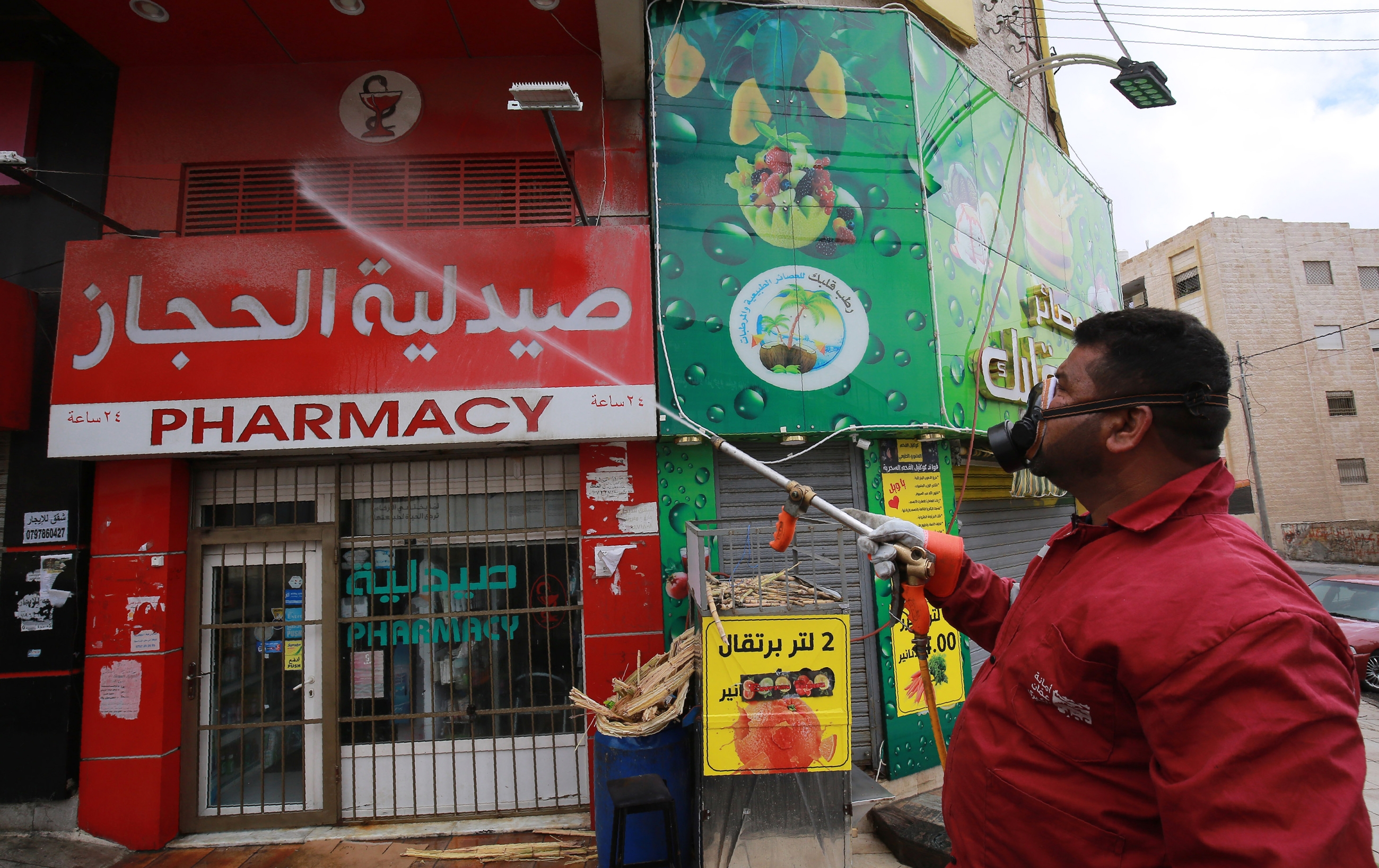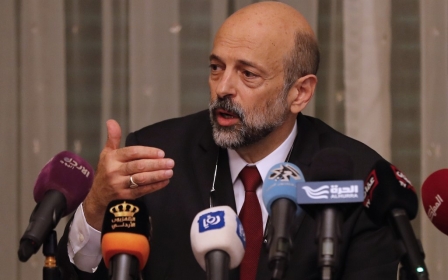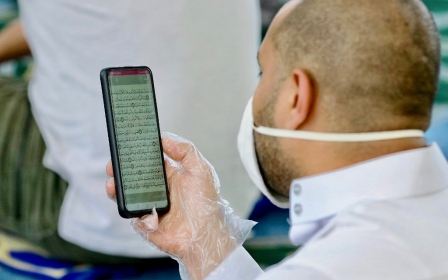'Nightmare': Jordanians lose sleep over unemployment spike

“Every day I feel like I might lose my job,” said Bilal Abu Mustafa, a garment factory worker who shares the same anxiety felt by many in Jordan, where the threat of unemployment is looming large over thousands of people.
Abu Mustafa, 39, is one of 300 Jordanian workers whose jobs at the factory in Irbid, which has sustained losses as a result of the coronavirus, were saved when the labour ministry banned dismissals under a defence law enacted in March to help the kingdom contain the spread of the pandemic.
'The government is observing this nightmare as if it is watching a tornado in another country'
-Salameh Dirawwi, analyst
“This is the only income for my family and me. I often lose sleep as I worry about the few job opportunities that are available in Jordan,” said Abu Mustafa, who lives with his family in the Palestinian refugee camp of al-Husn.
“The coronavirus made a bad situation even worse.”
Unemployment has been a major concern in Jordan for years. In 2018, hundreds of disaffected youth held a sit-in outside the royal palace in the capital Amman to protest the economic policy that has led to widespread unemployment.
King Abdullah II told the New York Times last year that the issue of unemployment among the youth keeps him up at night.
But now, the future of Jordan’s economy seems more uncertain than ever as the Covid-19 pandemic aggravates the employment crisis.
The Jordan Labour Watch, a local non-profit, expects that the kingdom’s formal market will lose about 140,000 jobs, which would constitute 10.5 percent of the 1.35 million existing jobs in both the private and public sectors.
The job loss among Jordanians, however, is not limited to the local market.
A Gulf problem
Thousands of Jordanian working in the Gulf are expected to lose their jobs due to falling oil revenues. At 420,000, Jordanian expats in Saudi Arabia alone represent 40 percent of the nearly one million Jordanians working abroad.
Ahmad al-Hatteh, a Jordanian working in Saudi Arabia, helped launch a campaign in March to assist Jordanians who have lost their jobs and are no longer able to make ends meet.
Hatteh himself was forced to take three-month unpaid leave as coronavirus restrictions led to the closure of businesses in the Saudi kingdom.
He told Middle East Eye that among those who signed up for the initiative are 1,800 Jordanians who cannot afford to pay their rent.
'I often lose sleep as I worry about the few job opportunities that are available in Jordan'
-Bilal Abu Mustafa, factory worker
“We have to collect some money literally to buy food for some, and we have rented an apartment for three workers who were sleeping in the streets,” he said.
During a press conference on efforts to repatriate 6,000 Jordanians who lost their jobs in the Gulf, Jordanian Minister of Media Affairs Amjad Adaileh said that the government does not have a definite number of the recently unemployed Jordanian expats.
“We don’t have statistics… But with direction from his majesty the king, we are trying to bring back those who have lost their work and have become totally penniless,” he said.
“We have continuous plans to bring more.”
The minister said the plan of bringing back workers is still being reviewed.
“Once our beloved sons return, we know that they have important skills and hope that their contributions can be incorporated in the coming days to help the renaissance of Jordan.”
Statistics by Jordan’s central bank show that remittances are at $846m, a decrease of 5.4 percent in the first quarter of this year compared to the previous year.
The government's Central Department of Statistics has registered a marked increase in unemployment in the first quarter of 2020, before the pandemic hit the kingdom, where it reached 19.3 percent compared to 18.6 percent at the end of 2019.
Salameh Dirawwi, economic analyst and editor of Al-Maqar news website, said that based on the first quarter statistics and the damage caused by coronavirus, the next phase is expected to be "terrifying".
“The biggest problem facing Jordan is the large increase in the number of unemployed Jordanians,” Dirawwi told Middle East Eye.
“This is a huge economic, social and political problem that has been exacerbated by the pandemic.”
Nightmare
Unemployment among the youth, especially among tribal families in Jordan, also risks further tribal discontent with the monarchy and the government.
Tribal support has traditionally been the bedrock of support to the rulers in Jordan. But over the past decade, tribal figures and families have been marginalised in parallel with the economic crisis, leading some leaders to shift to opposition.
While the government of Prime Minister Omar al-Razzaz has been commended for swift actions to curb the spread of the virus, it has, however, faced widespread criticism over its handling the economic fallout.
“The government is observing this nightmare as if it is watching a tornado in another country,” said Dirawwi.
The analyst added that the future will be worse, with unemployment expected to rise in the coming months for different reasons, including the return of expatriates as Gulf countries, grappling with their own virus-hit economies, let more foreign workers go.
“We are not sure what will happen, but the return of thousands from the Gulf will cause a huge problem.”
Hassan Sitan, 60, a taxi driver in the capital Amman, is concerned about his son who works as an electrician in the Sharjah emirate of the United Arab Emirates.
Sitan said after being unemployed for some time, his son finally, and with great difficulty, found work at a construction company in the UAE. The family is now waiting for the airport to reopen so he can return.
“When he does come back, I have no idea what he will do. My son is looking to build a future, to get married and start a family,” Sitan told MEE.
“But things are getting harder and harder for Jordanians because many are being let go in the UAE and our government has done nothing for them.”
This article is available in French on Middle East Eye French edition.
Middle East Eye propose une couverture et une analyse indépendantes et incomparables du Moyen-Orient, de l’Afrique du Nord et d’autres régions du monde. Pour en savoir plus sur la reprise de ce contenu et les frais qui s’appliquent, veuillez remplir ce formulaire [en anglais]. Pour en savoir plus sur MEE, cliquez ici [en anglais].





